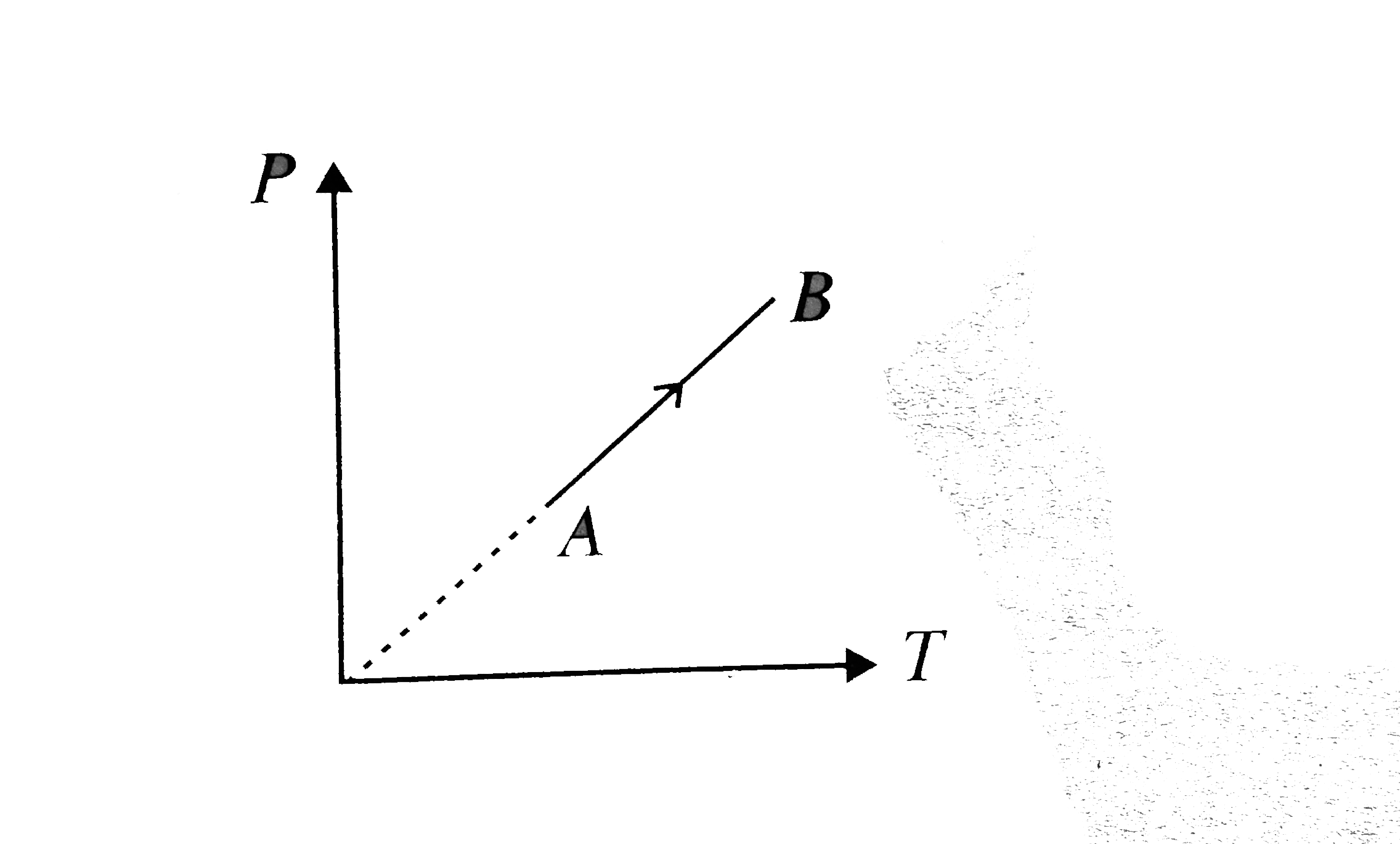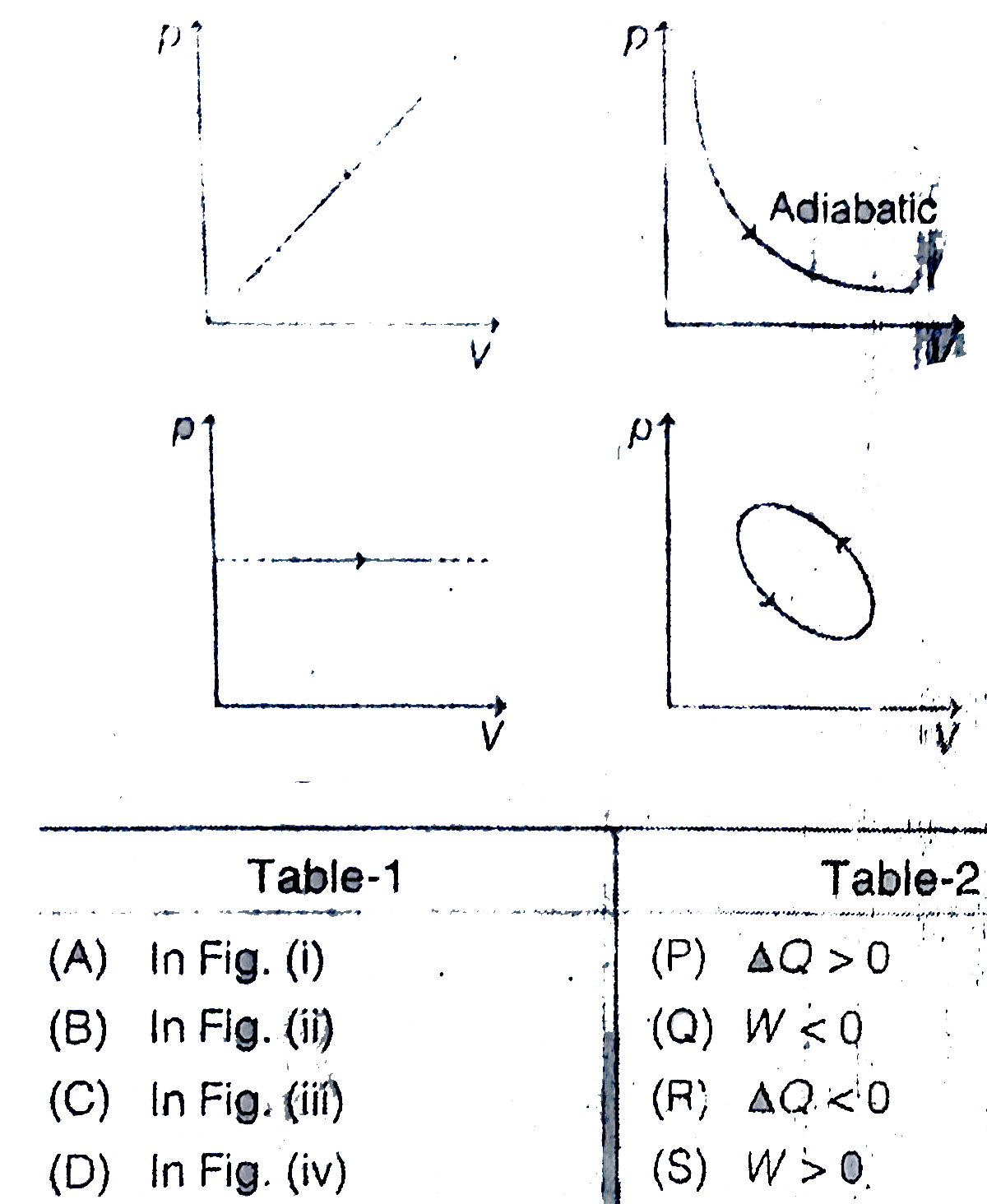In a given process on an ideal gas, dW = 0 and dQ<0. Then for the gas
the temperature will decrease
the volume will increase
the pressure will remain constant
the temperature will increase
The correct Answer is:A
From the first law of thermodynamics dQ=dU+dW
Now since dQ<0 (given)
∴ dQ is negative ⇒dU=−ve ⇒ dU decreases ⇒ Temperature decreases
∴ The correct option is (A).
Topper's Solved these Questions
- BOOK - VMC MODULES ENGLISHCHAPTER - GASEOUS STATE & THERMODYNAMICSEXERCISE - JEE MAIN (ARCHIVE )81videos
GASEOUS STATE & THERMODYNAMICS
- BOOK - VMC MODULES ENGLISHCHAPTER - ENERGY & MOMENTUMEXERCISE - JEE ADVANCE (ARCHIVE) - TRUE/FALSE TYPE1videos
ENERGY & MOMENTUM
- BOOK - VMC MODULES ENGLISHCHAPTER - GRAVITATIONEXERCISE - JEE Advance (Archive) TRUE/FALSE1videos
GRAVITATION
Similar Questions
In a given process on an ideal gas, dW=0 and dQ is negative, then for the gas:
View SolutionIn an isothermal process for an ideal gas
View SolutionDuring the process AB of an ideal gas
 View Solution
View SolutionDuring the process AB of an ideal gas
 View Solution
View SolutionIn a thermodynamic process on an ideal diatomic gas, work done by the gas is η times the heat supplied (η<1). The molar heat capacity of the gas for the process is
View SolutionCan a process on an ideal gas be both adiabatic and isothermal. ?
View SolutionIn a isothermal process on an ideal gas, the pressure increases by 0.5% . The volume decreases by about.
View SolutionIn isobaric process of ideal gas (f=5) work done by gas is equal of 10J. Then heat given to gas during process:
View SolutionThe figures given below show different processes (relating pressure P and volume V) for a given amount of an ideal gas. W is work done by the gas and ΔQ is heat absorbed by the gas.
 View Solution
View SolutionShow that in an isothermal expansion of an ideal gas, a ΔU=0 and b. ΔH=0.
View Solution

